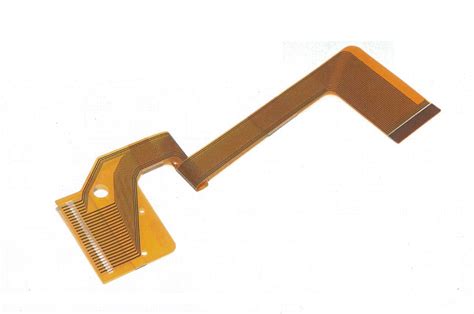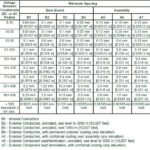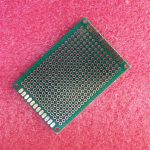What is FPC Assembly?
FPC assembly refers to the process of mounting electronic components onto a flexible printed circuit board. Unlike traditional rigid PCBs, flexible PCBs are made from thin, flexible materials such as polyimide or polyester. This flexibility allows for the creation of compact and lightweight electronic devices that can withstand repeated bending and twisting.
The FPC assembly process typically involves the following steps:
- Designing the flexible PCB layout
- Fabricating the flexible PCB
- Applying solder paste to the contact pads
- Placing electronic components onto the PCB
- Soldering the components to the PCB
- Inspecting and testing the assembled FPC
Advantages of FPC Assembly
FPC assembly offers several advantages over traditional rigid PCB Assembly, including:
- Reduced weight and size: Flexible PCBs are thinner and lighter than rigid PCBs, allowing for more compact and lightweight electronic devices.
- Increased durability: Flexible PCBs can withstand repeated bending and twisting without breaking or losing connectivity.
- Improved signal integrity: Flexible PCBs offer better signal integrity due to their reduced susceptibility to electromagnetic interference (EMI) and crosstalk.
- Enhanced design flexibility: Flexible PCBs can be designed to fit into tight spaces and conform to unique shapes, enabling more creative and efficient product designs.
Top FPC Assembly Companies
There are numerous FPC assembly companies worldwide, each offering a range of services and capabilities. Here are some of the top FPC assembly companies:
1. Flexium Interconnect Inc.
Flexium Interconnect Inc. is a leading FPC assembly company based in Taiwan. They offer a wide range of FPC assembly services, including:
- Single-sided and double-sided FPC assembly
- Rigid-flex PCB assembly
- High-density interconnect (HDI) FPC assembly
- Chip-on-flex (COF) assembly
Flexium Interconnect Inc. serves various industries, including consumer electronics, automotive, medical, and aerospace.
2. Career Technology (Mfg.) Co., Ltd.
Career Technology (Mfg.) Co., Ltd. is another prominent FPC assembly company based in Taiwan. They provide comprehensive FPC assembly services, such as:
- Single-sided and double-sided FPC assembly
- Multi-layer FPC assembly
- Rigid-flex PCB assembly
- Chip-on-film (COF) assembly
Career Technology (Mfg.) Co., Ltd. caters to customers in the consumer electronics, automotive, and medical device industries.
3. Nippon Mektron, Ltd.
Nippon Mektron, Ltd. is a Japanese FPC assembly company with a global presence. They offer a range of FPC assembly services, including:
- Single-sided and double-sided FPC assembly
- Multi-layer FPC assembly
- Rigid-flex PCB assembly
- Chip-on-film (COF) assembly
Nippon Mektron, Ltd. serves customers in various industries, such as consumer electronics, automotive, medical, and telecommunications.
4. Zhen Ding Technology Holding Limited
Zhen Ding Technology Holding Limited is a Chinese FPC assembly company with a strong presence in the global market. They provide a comprehensive range of FPC assembly services, including:
- Single-sided and double-sided FPC assembly
- Multi-layer FPC assembly
- Rigid-flex PCB assembly
- High-density interconnect (HDI) FPC assembly
Zhen Ding Technology Holding Limited caters to customers in the consumer electronics, automotive, and medical device industries.
FPC Assembly Services
FPC assembly companies offer a variety of services to meet the diverse needs of their customers. Some of the most common FPC assembly services include:
1. Single-sided and Double-sided FPC Assembly
Single-sided FPC assembly involves mounting electronic components on one side of the flexible PCB, while double-sided FPC assembly involves mounting components on both sides of the PCB. Double-sided FPC assembly allows for higher component density and more complex circuit designs.
2. Multi-layer FPC Assembly
Multi-layer FPC assembly involves stacking multiple layers of flexible PCBs to create a more complex and dense circuit design. This allows for the integration of more electronic components and functionality within a smaller footprint.
3. Rigid-flex PCB Assembly
Rigid-flex PCB assembly combines the benefits of both rigid and flexible PCBs. The rigid sections provide structural support and allow for the mounting of larger components, while the flexible sections enable the PCB to bend and fit into tight spaces.
4. High-density Interconnect (HDI) FPC Assembly
HDI FPC assembly involves the use of smaller vias and finer trace widths to achieve higher component density and more complex circuit designs. This enables the creation of even more compact and lightweight electronic devices.
5. Chip-on-flex (COF) and Chip-on-film (COF) Assembly
COF and COF assembly techniques involve directly mounting bare die chips onto the flexible PCB or film substrate. This eliminates the need for a separate chip package, resulting in a more compact and lightweight assembly.

Advantages of Working with FPC Assembly Companies
Working with experienced FPC assembly companies offers several advantages, including:
1. Expertise and Experience
FPC assembly companies have the necessary expertise and experience to handle complex FPC assembly projects. They employ skilled technicians and engineers who are well-versed in the latest assembly techniques and technologies.
2. State-of-the-art Equipment
FPC assembly companies invest in state-of-the-art equipment and facilities to ensure the highest quality and efficiency in their assembly processes. This includes advanced pick-and-place machines, reflow ovens, and automated optical inspection (AOI) systems.
3. Quality Control and Testing
FPC assembly companies implement strict quality control measures and testing procedures to ensure that the assembled FPCs meet the highest standards of reliability and performance. This includes visual inspections, electrical testing, and environmental stress testing.
4. Cost-effective Solutions
By outsourcing FPC assembly to specialized companies, customers can benefit from cost-effective solutions that leverage the economies of scale and expertise of these providers. This can result in lower production costs and faster time-to-market for their products.
Applications of FPC Assembly
FPC assembly is used in a wide range of industries and applications, including:
1. Consumer Electronics
FPC assembly is extensively used in consumer electronics, such as smartphones, tablets, laptops, and wearables. The flexibility and compact size of FPCs enable the creation of slim and lightweight devices with advanced features and functionality.
2. Automotive Electronics
FPCs are increasingly used in automotive electronics, such as infotainment systems, dashboard displays, and advanced driver assistance systems (ADAS). The durability and flexibility of FPCs make them ideal for the harsh environmental conditions encountered in automotive applications.
3. Medical Devices
FPCs are used in various medical devices, such as patient monitors, diagnostic equipment, and wearable health monitors. The lightweight and flexible nature of FPCs allows for the creation of comfortable and unobtrusive medical devices that can be easily worn or implanted.
4. Aerospace and Defense
FPCs are used in aerospace and defense applications, such as avionics systems, satellite communications, and military equipment. The high reliability and durability of FPCs make them suitable for the demanding environmental conditions encountered in these applications.
Choosing the Right FPC Assembly Company
When choosing an FPC assembly company, there are several factors to consider, including:
1. Technical Capabilities
Ensure that the FPC assembly company has the necessary technical capabilities and expertise to handle your specific project requirements. This includes experience with the relevant assembly techniques, materials, and components.
2. Quality Standards and Certifications
Look for FPC assembly companies that adhere to strict quality standards and hold relevant certifications, such as ISO 9001, ISO 14001, and IATF 16949. These certifications demonstrate the company’s commitment to quality, environmental responsibility, and continuous improvement.
3. Production Capacity and Lead Times
Consider the production capacity and lead times of the FPC assembly company to ensure that they can meet your volume requirements and delivery schedules. Look for companies with flexible production capabilities and a proven track record of on-time delivery.
4. Customer Support and Communication
Choose an FPC assembly company that offers excellent customer support and communication throughout the project lifecycle. This includes responsive communication, proactive problem-solving, and a willingness to collaborate and adapt to your specific needs.
Future Trends in FPC Assembly
As technology continues to advance, FPC assembly companies are constantly innovating and adapting to new trends and challenges. Some of the future trends in FPC assembly include:
1. Miniaturization and High-density Assembly
The demand for smaller and more compact electronic devices is driving the trend towards miniaturization and high-density FPC assembly. This involves the use of finer pitch components, smaller vias, and advanced assembly techniques to achieve even higher levels of integration and functionality.
2. Advanced Materials and Substrates
FPC assembly companies are exploring the use of advanced materials and substrates to improve the performance and reliability of FPCs. This includes the use of high-temperature materials, low-loss dielectrics, and flexible substrates with embedded components and circuits.
3. Automation and Industry 4.0
The adoption of automation and Industry 4.0 technologies is transforming the FPC assembly industry. This includes the use of robotics, machine learning, and data analytics to optimize assembly processes, improve quality control, and reduce costs.
4. Sustainable and Eco-friendly Practices
FPC assembly companies are increasingly focusing on sustainable and eco-friendly practices to reduce their environmental impact and meet the growing demand for green electronics. This includes the use of recyclable materials, energy-efficient processes, and responsible waste management practices.
Frequently Asked Questions (FAQs)
1. What is the difference between FPC and rigid PCB assembly?
FPC assembly involves the use of flexible PCBs made from thin, flexible materials such as polyimide or polyester, while rigid PCB assembly uses traditional rigid PCBs made from a solid substrate material such as FR-4. FPCs offer several advantages over rigid PCBs, including reduced weight and size, increased durability, and enhanced design flexibility.
2. What industries commonly use FPC assembly?
FPC assembly is commonly used in various industries, including consumer electronics, automotive electronics, medical devices, aerospace, and defense. The flexibility and compact size of FPCs make them ideal for applications that require lightweight, durable, and space-saving electronic connections.
3. How do I choose the right FPC assembly company for my project?
When choosing an FPC assembly company, consider factors such as technical capabilities, quality standards and certifications, production capacity and lead times, and customer support and communication. Look for companies with experience in your specific industry and project requirements, and a proven track record of delivering high-quality FPC assemblies on time.
4. What are the advantages of working with an FPC assembly company?
Working with an experienced FPC assembly company offers several advantages, including access to expertise and experience, state-of-the-art equipment, strict quality control and testing procedures, and cost-effective solutions. By outsourcing FPC assembly to specialized companies, customers can benefit from lower production costs, faster time-to-market, and higher-quality end products.
5. What are some of the future trends in FPC assembly?
Some of the future trends in FPC assembly include miniaturization and high-density assembly, the use of advanced materials and substrates, the adoption of automation and Industry 4.0 technologies, and a focus on sustainable and eco-friendly practices. As technology continues to evolve, FPC assembly companies will need to adapt and innovate to meet the changing needs of their customers and the global market.
Conclusion
Flexible PCB assembly companies play a crucial role in the production of modern electronic devices, offering a range of services and capabilities to meet the diverse needs of their customers. By leveraging the expertise and experience of these specialized providers, customers can benefit from cost-effective, high-quality FPC assemblies that enable the creation of innovative and reliable electronic products.
As technology continues to advance, FPC assembly companies will need to stay at the forefront of emerging trends and challenges, such as miniaturization, advanced materials, automation, and sustainability. By doing so, they can continue to deliver value to their customers and support the growth and evolution of the global electronics industry.






Leave a Reply